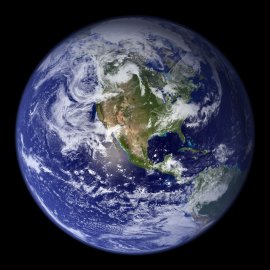New Economic Ideas
-
English
-
ListenPause
WOR 396 New Economic Ideas I’m Peter Neill, Director of the World Ocean Observatory, One of the organizing editorial principles of World Ocean Radio is to look beyond the conventional response. As we face challenges for the future, suggestions for adaptation and mitigation abound, but these seem like an inadequate response to the criticality of the many issues before us on land and sea. On its Facebook page and other social media sites, the World Ocean Observatory is constantly posting fresh, unexpected, real ideas for change; under the rubric “invention,” we attempt to build awakening and awareness of innovation and imagination that will be the practical building blocks for a successful shift in valuation, organization, and behavior in the 21st century. For the next few months then, World Ocean Radio will profile a series of projects, perspectives, and organizations that are the basis for our optimism that, as individual, communities, and nations, we will find a successful way forward. Let’s start with three interesting economic ideas quoted from an article in the September issue of Yes Magazine by Gar Alperovitz, co-founder of the Democracy Collaborative and The What’s Next Project. 1. Public banking: Public banking, which invests capital for the common good rather than Wall Street’s bottom line, has existed at the state level for nearly 100 years in North Dakota. The publicly owned Bank of North Dakota has long strengthened the state economy, expanded access to affordable credit, and contributed its revenues to supporting vital services like education. By demonstrating the power of finance as a public utility, the public banking movement is building momentum for and giving shape to a democratic system of investment that is much larger. Public banks, credit unions, and community development financial institutions can all grow over time to displace the financialized, profit-seeking banking sector, helping turn the tables to put the public’s money to work for the benefit of everyone. 2. Worker ownership: There’s been an explosion of interest in worker cooperatives as a simple solution to begin democratizing ownership of the economy. An ecosystem is emerging that allows people all across the country to accelerate these cooperatives’ development by engaging local governments for support, converting existing businesses, or even investing personal savings into their expansion. Cooperative development projects like the Wellspring Collaborative in Springfield, Massachusetts, and the CERO cooperative in Boston are creating exciting new crowdfunding mechanisms to help communities launch democratic enterprises. Organizations like The Working World and the Shared Capital Cooperative are building national networks to channel financial resources into the cooperative economy, creating diversified opportunities in which both institutions and individuals can invest. In cities like New York, Madison, Wisconsin, and Rochester, New York, municipal funding is now being used to support the work of cooperative developers focusing on creating worker-owned businesses in low-income communities. There is no reason why every city and town’s existing infrastructure for helping small businesses cannot be turned toward democratic alternatives… 3. Procurement politics: “Buy local” at a bigger scale Solid local organizing is shifting the purchasing behavior of place-based nonprofit institutions—or “anchor” institutions—toward sustainability and economic inclusion. Consider the Real Food Challenge: In less than a decade, this network of student activists has secured pledges to shift more than $60 million of food purchases at 73 colleges and universities across the country into more sustainable and just options. Nonprofit hospitals may be particularly open to such demands with new rules under the Affordable Care Act mandating “community health need assessments”… Buying local may make us feel better about the consequences of our consumer choices, but when we change the way our public and large nonprofit institutions like universities and hospitals spend their money, we’re shifting hundreds of billions, if not upwards of a trilli on, dollars into local economies—and creating a kind of decentralized planning system in the process. Alperovitz offers many other ideas. But let’s just take these three and apply them in an ocean context where we see how they might be advantageously applied to financing local marine businesses and value-added employment, to increased efficiency, marketing reach, and financial return from fishing and agricultural cooperatives, and to leveraging of local and regional buying power for the financial and social benefit of the community. There is a pervasive logic to these suggestions; what keeps any of them from happening now, here, or where you live? We will discuss these issues, and more, in future editions of World Ocean Radio.
World Ocean Radio is set to embark on a series highlighting optimistic projects, perspectives, and organizations helping to raise awareness at the individual, community, and national levels for the health and future of the earth and ocean. In this episode, host Peter Neill begins with some economic ideas as outlined by Gar Alperovitz of the Democracy Collaborative and the Next System Project.
About World Ocean Radio
Peter Neill, Director of the World Ocean Observatory and host of World Ocean Radio, provides coverage of a broad spectrum of ocean issues from science and education to advocacy and exemplary projects. World Ocean Radio, a project of the World Ocean Observatory, is a weekly series of five-minute audio essays available for syndicated use at no cost by college and community radio stations worldwide. A selection of episodes is now available in Portuguese, Spanish, French, Swahili, and Mandarin, enabling us to reach 75% of the world's population. For more information, visit WorldOceanObservatory.org/world-ocean-radio-global.
Image Credit
GOOS | NASA's Goddard Space Flight Center
- Login to post comments



